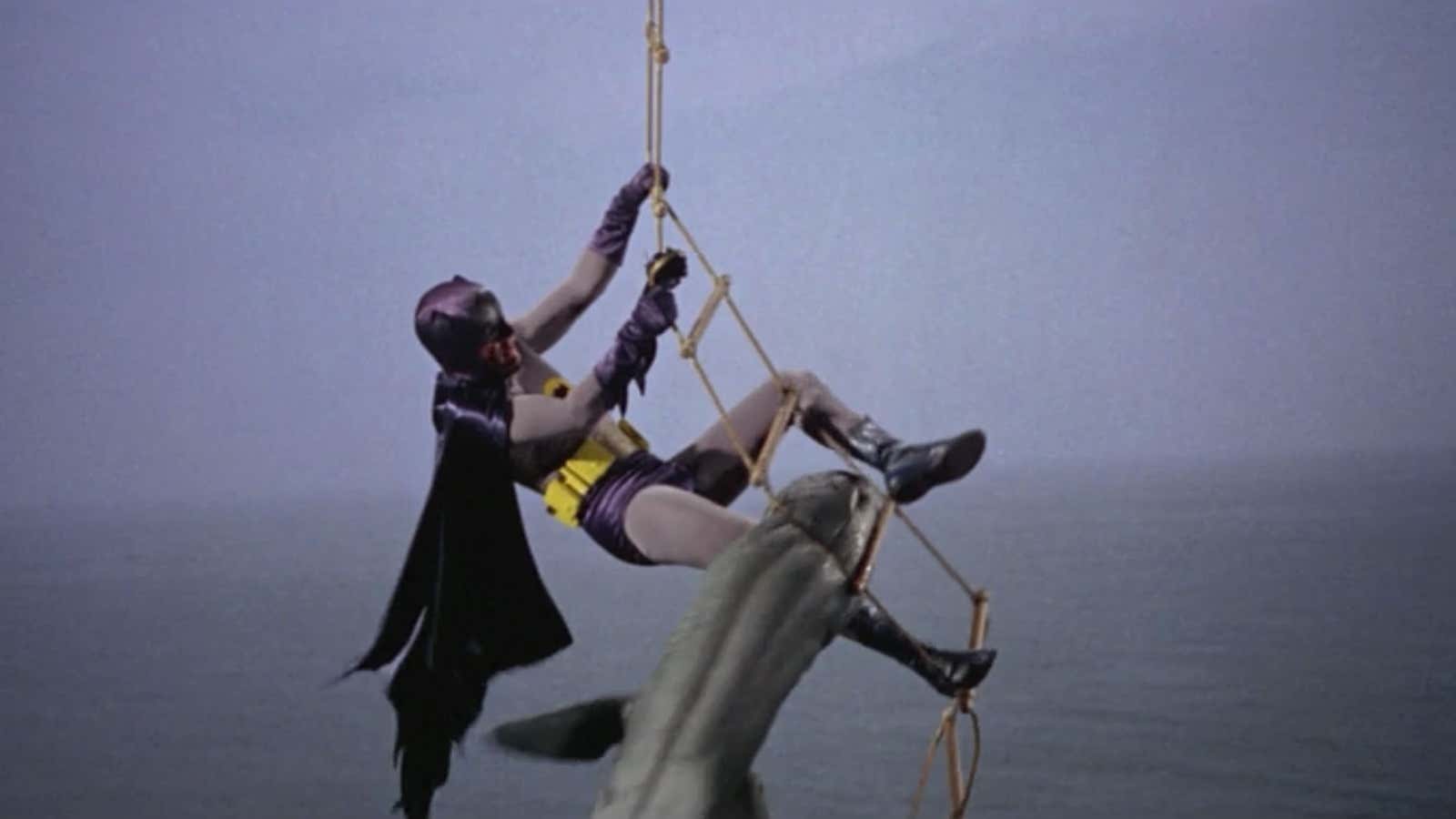It goes without saying that the US Central Intelligence Agency can’t tweet about ongoing operations. What it can do, and often does, however, is dole out interesting little history lessons, based on declassified reports.
Today, in recognition of the national event that Discovery Channel’s annual Shark Week has become, the CIA detailed the invention of “shark repellent” and how the legendary American cookbook author Julia Child—then Julia McWilliams and not yet a culinary superstar—helped the agency find the perfect recipe.
In 1942, Child joined the Office of Strategic Services (OSS), a predecessor to today’s CIA. It was the height of World War II, and dozens of US Naval officers had been attacked by sharks. The Joint Chiefs of Staff under president Franklin D. Roosevelt requested that the OSS develop a shark repellent for US soldiers.
Among the many substances tried were a variety of poisons, decayed shark meat, and organic acids. But copper acetate, with a 60% success rate in field tests, was chosen. That said, the acetate only worked against sharks—it was useless against other predatory fish such as barracudas and piranhas.
Cakes whipped up from copper acetate and black dye and designed to smell like dead shark (far less appetizing than Child’s famous chocolate and almond Reine De Saba cake) were put in small metal boxes that could be strapped to a soldier’s life vest, leg, arm, or belt. They could reportedly keep sharks at bay for up to seven hours.
The repellent was also used to coat explosives targeting German U-boats, so sharks wouldn’t accidentally set them off. According to the CIA, “curious sharks would sometimes set off the explosives when they bumped into them.”
The CIA also produced a jauntily illustrated guide to facing down sharks, which it excerpted in tweets:
Child would claim later that the shark repellant cakes found another use: “I understand the shark repellent we developed is being used today for downed space equipment—strapped around it so the sharks won’t attack when it lands in the ocean,” she said. The CIA, however, has been unable to confirm this.
And so ends another fascinating history lesson from the CIA Twitter account. In January, the CIA tweeted about a recently declassified report detailing how the agency snuck Russian copies of Boris Pasternak’s subversive novel Dr. Zhivago into the Soviet Union during the Cold War. And last year, in honor of the 35th anniversary of the Iran Hostage Crisis, it used Twitter to fact-check the veracity of Ben Affleck’s Oscar-winning film Argo.
